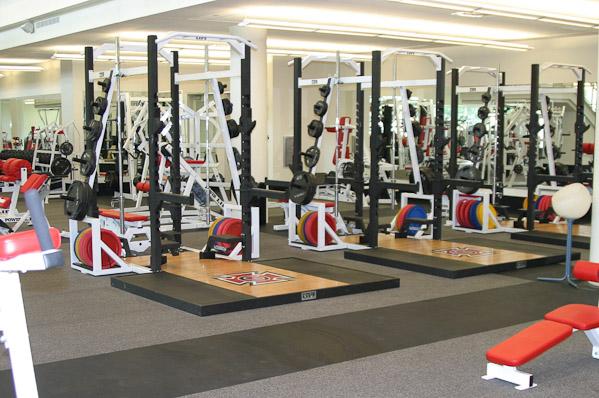By Allison Moore
mooreall2@grinnell.edu
“Do these pants make me look fat?”
We’ve all heard or articulated a version of this before. Whereas sometimes these questions are borne of genuine insecurity in search of reassurance, too often they are asked by the hyper-fit crowd who seek incessant validation for their workout routines and already obvious results.
I have long hesitated to raise concerns about gym talk because I continually ask myself whether it is unfair that I am triggered every time someone mentions their latest workout. Is this an unreasonable response on my part? After much reflection, I have decided that most of the time I am not overreacting. Instead, it is an understandable reaction to how people (intentionally or not) seem to narrowly quantify what “healthy” and “fit” really mean.
As someone who struggles to exercise regularly, I find myself wondering … How can my workout-obsessed peers and I better coexist?
I think we can all agree: working out is great. It ups our serotonin, infuses us with energy, improves our physical health, and boosts our self-esteem. But in the midst of juggling classes, extracurriculars, jobs, and sometimes paralyzing mental-health challenges, not all of us find it easy to be good to ourselves in this way. When classmates recite their workouts in detail or boast about adding twenty pounds to their back squats, they are justifiably proud of their accomplishments. But do they also know that I find myself crawling into my own skin when their physical obsessions dominate the conversation?
As someone who struggles to exercise regularly, I find myself wondering … How can my workout-obsessed peers and I better coexist?
Surely we can begin by agreeing that, regardless of how frequent our workouts, all of us are people worthy of feeling comfortable in our own skin. Both The Rock and Lizzo should (and do) proudly own their bodies without judgment or shame.
However, toxic fitness culture is a real phenomenon, as Lizzo’s hateful detractors prove daily. It is rooted in the belief that conventionally attractive (thin, toned), able-bodied, cisgender, white physiques are innately more attractive and respectable than other body types. Toxic fitness culture has become so deeply ingrained in our society — through media in particular — that most people don’t realize it exists or that they, too, unwittingly perpetuate it. This creates an unhealthy relationship with fitness in which people strive to achieve an “ideal” body type in sometimes dangerous ways.
At Grinnell, I have noticed a social divide between athletes and non-athletes. Sports teams often sit together at meal times, post pictures together on social media, and constantly talk about their workouts. They live together in off-campus houses and plaster their stats up on the walls. To me, this seems like a world very separate from my own, and one to which I and others not only don’t belong but are not invited to join.
So, how can we all better coexist while being proud of who we already are, encouraging each other to be our better selves and not unnecessarily or consequentially dissing those of us a little behind on the motivational spectrum?
Let’s think about embracing body neutrality, which promotes accepting our bodies the way they are. Rather than forcing us to embrace and reinforce toxic physical ideals, this attitude encourages us to be mindful and appreciative of our bodies and how they work for us.
For those of you who frequent the gym, this might mean not just embracing an attitude of bodily neutrality but also practicing — dare I suggest — a little bodily humility. While I am honestly proud (and admittedly a bit jealous) of you and your successful workout regimen, please know that if you tell me about how you added another twenty sit-ups to your routine this week, that only reminds me that I haven’t done any sit-ups at all.
For those of you who frequent the gym, this might mean not just embracing an attitude of bodily neutrality but also practicing — dare I suggest — a little bodily humility.
What if, instead, we handled this topic with the kind of sensitivity we use with our friends when it comes to other measures of success in life. Just as a mindful and coupled friend takes care not to go on and on about her love-addled relationship around her single friends, so too should those of you Insta-ready workout queens keep the mirror-gazing to a minimum around those of us who do not (or can only for now aspire to) share your personal passion for exercise.
Obviously, we all have our own nerdy idiosyncrasies and ways of measuring ourselves against other people, but if we want to continue to have friends across those lines—whether it be intellectual or physical or emotional—we need to carefully consider how introducing those kinds of benchmarks might negatively impact the friends that don’t share your same measurements of success. So if you muscle-obsessed Grinnellians can simmer down a bit about your workout details in mixed company, I’ll do my best to share your enthusiasm when you do bring it up.
As someone who is still trying to figure out my own relationship to exercise, fitness, and wholeness, I have to ask: what can I reasonably expect from my hyper-fit gym-rat peers (whom I still want to be friends with) who enjoy talking about exercise, while still recognizing the potential traumatization and my past history of exercise anxiety, eating disorders and lack of motivation? So, just as you will work on talking less frequently about going to the gym, I will work on making any sort of talk about exercise less of a trigger.
A final warning: if you fitness freaks don’t start dialing down your detailed descriptions of leg days, I am fully ready to respond with equally detailed accounts of how many colored pens I use to carefully craft my monthly planner.

























































